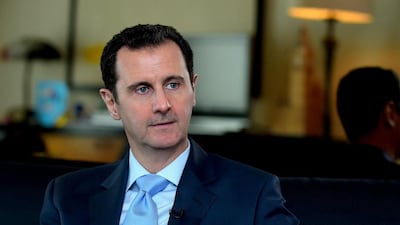United States’s strategy in the campaign against ISIL, particularly in Syria, is reaching a crisis point. On the ground, the limitations of the current approach are becoming clear. And politically in Washington, the issue appears to be ripening as a potential wedge that Republicans, now in control of the Senate, could use to attack the Obama administration’s foreign policy.
Many, including incoming Senate armed services committee chair John McCain, see the growing controversy over Syria policy as a more effective critique than the failed efforts to exploit the tragedy at the US consulate in Benghazi, Libya.
Both American military and independent assessments emphasise that, despite almost 800 air strikes against it in Syria, ISIL is continuing to consolidate and expand control over territory in that country. Critics point out that any campaign in which enemy forces are acknowledged to be intensifying control over key territories cannot be judged a success. And once that is acknowledged, the questions can only be these: what is going wrong and what can be changed to correct it. The voices in Washington that are demanding to know how policy is going to be adjusted to fix what’s broken are growing louder and more numerous by the day.
The Obama administration counters that nothing is going wrong at all. The Wall Street Journal quoted a senior American defence official as explaining: “Certainly ISIL has been able to expand in Syria, but that’s not our main objective.”
A military spokesman added that “gaining territorial control in Syria has never been our mission” and “That it wasn’t the objective of our air strikes”. Instead the air strikes in Syria were merely “shaping” actions designed to influence events on the ground in Iraq. But few are buying the idea that this is no big deal.
From the outset, American officials have acknowledged that there cannot be a clear distinction drawn between Syria and Iraq in the battle against ISIL, largely because the terrorist group doesn’t recognise one and acts accordingly. In August, Gen Martin Dempsey, US joint chiefs of staff chair, insisted that ISIL “will eventually have to be defeated,” but asked and answered the crucial question, “Can they be defeated without addressing that part of the organisation that resides in Syria? The answer is no.” He added that in this context the border between Iraq and Syria is “nonexistent”.
This prepared American legislators and citizens alike for the campaign of air strikes in Syria that quickly followed. But it also gives them ample grounds now for questioning not merely the wisdom, but the viability, of the administration’s “Iraq first” approach. In practice this has meant that whenever ISIL experiences major setbacks in Iraq, the terrorists retain their ability to seek refuge and regroup in Syria. Confusion over how such an approach is supposed to produce its stated goals of “degrading and destroying” ISIL is, to say the least, understandable.
Bewilderment and frustration are only intensified by a recent announcement that the American military will deploy 400 troops to train “moderate” Syrian rebels to fight ISIL. The problem isn’t simply that this figure seems impossibly small given the uncontested importance of the counter-ISIL mission. It’s also that this development brings into sharper focus than ever the crucial problem of American policy ambiguity on the future of Syrian dictator Bashar Al Assad. These moderate rebels, after all, will inevitably will be drawn from groups and constituencies that must be at least as opposed to Mr Al Assad, who is responsible for more than 100,000 deaths over the past three years, as they are to ISIL.
Spokesmen for the Free Syrian Army have made it very clear they intend to use any US weapons or training to fight Mr Assad as well as ISIL. And they claim that the Americans understand and approve this. But American policy statements on the subject are actually very murky, and the higher one goes in the pecking order, the less they seem consistent with any such interpretation.
In December, Gen John Allen, head of the global coalition to counter ISIL, affirmed that, when the conflict in Syria is concluded, “as far as the US is concerned, there is no Bashar Al Assad, he is gone”. However, when asked if the United States is considering ways of removing the Syrian president, Barack Obama simply said, “No.”
Indeed, former defence secretary Chuck Hagel was dismissed after an internal memo he circulated warned that the campaign against ISIL was, as The New York Times summarised it, “in danger of unravelling because of its failure to clarify its intentions” regarding Mr Assad’s future.
Mr Obama has, at times, come close to acknowledging the contradiction that is bedevilling his policy towards Syria. But, he insists, his plan has a “strong chance of success” in Iraq, while Syria remains “more challenging”.
The unavoidable fact, however, is that the coalition cannot have a plausible strategy to defeat ISIL in Iraq without simultaneously having one in Syria. That will require a greater effort in Syria, and one moreover that is based on an unambiguous American stance against the continuation of Mr Al Assad in power. Until that happens, expect confusion and frustration to keep intensifying over a policy that is drifting into crisis.
Hussein Ibish is a senior fellow at the American Task Force on Palestine
On Twitter: @ibishblog


